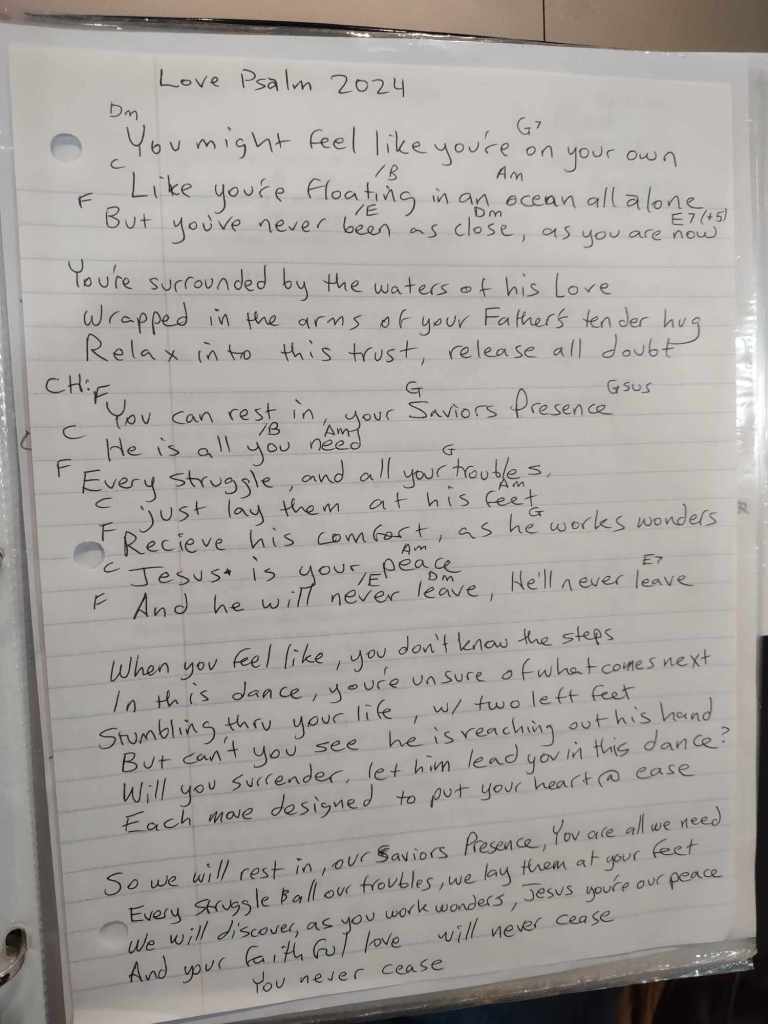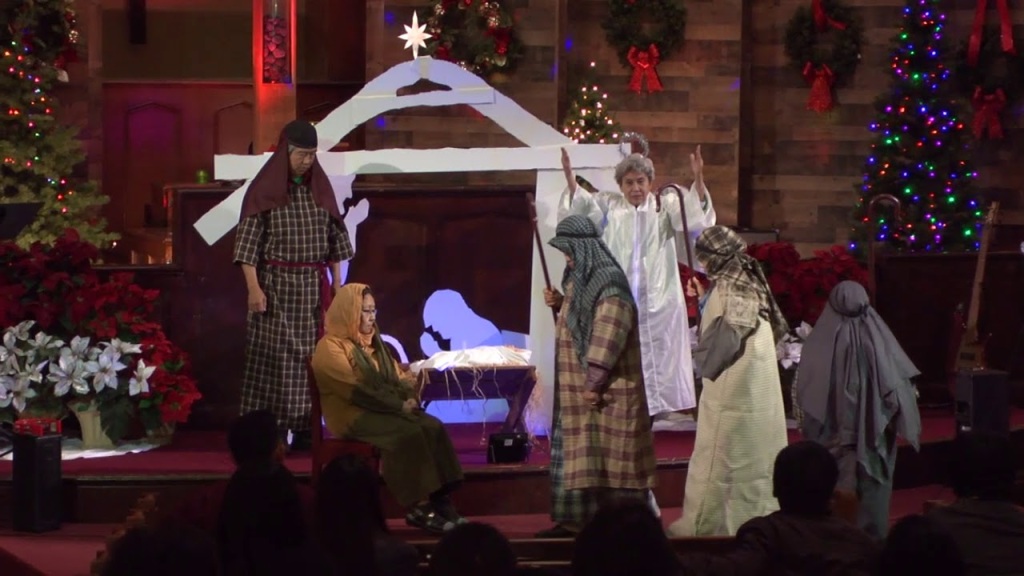In this clip from a speech, Brad Pitt says:
“I don’t know if any of what we do matters in the end. What I do know that matters is the people we hitch ourselves to and the indelible mark they leave upon our very being. I was reading a passage recently where a character was asking, “Which is most important, the journey or the destination?” and the other replied, “It’s the company.” And I couldn’t agree more.”
I have watched many Youtube shorts and this one made such an impression upon me to such a degree that it merited a blog post – an investment of a few hours of my day writing and refining a proper reflection and response. (Buy me a coffee here: https://www.buymeacoffee.com/daniellovett)
So let’s address the first thing Brad says: “I don’t know if any of what we do matters in the end.”
Ecclesiastes is a book Solomon wrote that begins by declaring everything meaningless. There is a verse in Ecclesiastes that says, “Most of what God has given for us to do is busywork”.
My response and question to this remark is this: Are there things God allows us to do that are more than meaningless and beyond the busywork? Are we capable of activity that is elevated beyond simply the maintenance of our own existence?
I shared this clip with my songwriting class yesterday and asked them these questions. As a wholistic songwriting coach who is interested in writing songs that matter, I wish to impress upon my students that songs come from who you are. Songs come from an inspired place within your soul that are in touch with the Divine Source of all inspiration. We write songs that matter with Jesus as our songwriting partner. As he said, “Apart from me, you can do nothing… and I have appointed you to bear much fruit… fruit that will remain.”
Jesus, or in his own language, Yeshua, is introduced by his best friend John as the Logos in John 1:1
Logos can be translated as “Meaning”.
Ha! Isn’t that something? Yeshua is the One who brings meaning to our existence. But the only way this is going to happen for anyone is found in a phrase that Solomon includes at the end of his treatise on the meaning of human existence: to “fear God”. I bring this up because I must. This was a hard learned lesson I have often reflected upon in my 47 cycles around the sun.
Solomon wrote: “And this is the end of the matter: Fear God and keep his commands.”
Is he hinting at his discovery of what does bring meaning to life? Is he finally declaring, as a service to humanity, what actually matters?
I have learned in my studies that to “fear God” means “reverential trust”. Reverence means to give Jesus the proper respect that is due him. He is Lord. He’s the boss. He is the Master. He is the Leader in the Divine Dance of Life. We let him lead. We submit to him as our Master. He is the only Master Jedi… the only One… and we are all the Jedi apprentice padawans. He is the Husband and we are the submissive humble wife in this scenario.
The Lord greeted me one Sunday morning with the words: “Today I am going to teach you about the fear of the Lord.”
“Okay”, I responded… and waited for him to say more.
“Later…” he replied.
I went off to church and a few minutes before going on the stage to lead the church in worship, he spoke: “Okay, it’s like this…”
“Wow… okay.. so this is happening now. Great!”
“The fear of the Lord is exampled by what John said about me”, Jesus said, “Recall when he said of me, ‘He must increase and I must decrease’? He humbled himself and became small so that I could loom large… You do the same.”
And so I did. I got out of the way that day and Jesus loomed large. We had a brilliant and powerful time of anointed worship.
May Jesus loom large in our life today. Say it with me would you?
“Jesus, loom large in my life today.”
Ask Jesus to lead your dance of life. As the Scripture says, “Set apart Jesus as Lord in your life.”
The second part of Solomon’s prescription was: “Keep his commands”. I love how John highlighted this in his first letter when he reminded us of Jesus parting words to his disciples before going to the cross: “Love one another… love one another as I have loved you.” John added that “his commands are not burdensome.” Indeed, hasn’t Jesus promised that his yoke (his teaching) is easy and his burden (what he commands) is light?
So what can we do that matters? Is it possible to focus our entire lives around what matters? Can we saturate our days with love? Repeat after me:
“Yes we can!”
Jesus said, “Take my yoke upon you.” This means we are hitched to him to work with and alongside him. He is the lead ox in this scenario. Anything we do that matters (including writing songs that matter) are only going to happen with Jesus as the one we hitch ourselves to. He is ultimately the one who brings the meaning to our life as we keep company with him.
“What if we hitched ourselves to Jesus? What if he is, first and foremost, the company we keep? What would it look like to have Jesus as you best friend?”
I am reminded of a few Scriptures. One verse talks about how God has promised never to leave us or forsake us. Jesus says, “I am with you always”. This means that Jesus is already upholding his side of this friendship. He is keeping company with us. You already possess an amazing relationship with God and it’s not your fault:
“So now we can rejoice in our wonderful new relationship with God because our Lord Jesus Christ has made us friends with God.” Romans 5:11 NLT
In Revelation 3:10 Jesus, when speaking to believers says, “I stand at the door and knock. Whoever hears my voice and opens the door, I will come in and we’ll share a meal together as friends.”
The veil has been torn. We all have access to the holy of holies. This is what some call the secret place where we can fellowship with Jesus and our loving Father in ABSOLUTE Peace. Safe. Secure. “Wrapped in the arms of your Father’s tender hug”. (Those are lyrics I wrote today for a new song I am calling Love Psalm 2024.)

What does that mean to you?
It says to me that I you and I have been purchased at a very high price. You and I have been valued by the blood of God’s only begotten Son, our best friend Yeshua. You and I have been made holy. You and I have One who is responsible for us. Our Creator, our Good Shepherd and Overseer of our soul, has taken responsibility for us. We are safe in his care.
I encourage everyone to open the door and invite Jesus in.
Holy Spirit seems to be indicating to me that Jesus is making a reference to Song of Solomon in that revelation 3:10 verse. Is this really to be interpreted as a Divine romance between each and every one of us and God? Is Jesus not spoken of as our Groom? Are we not spoken of as the Bride? It seems he is hinting at the fact that we are more than friends. To what level of intimacy does Jesus want with each and every one of us?
I invited my songwriting class kids to ask God this question:
“Jesus, what kind of relationship do you want to have with me?”
I invited them to inquire of their own heart:
“What kind of relationship do I want with God?”
I reminded them that you can have as close of a relationship with God as you have ever witnessed anyone have with Jesus. Even in Scripture. God is no respecter of persons. Elijah was a man just like us. Jesus best friend John was a man just like us. You too can be the disciple whom Jesus loves.
I was in a nursing home this morning doing a concert and, before I started, I observed a woman lean over to another woman who could no longer talk and said, “I love you. You are my very best friend. I love you.” She said this just to make her feel loved and special that day. She meant it. I closed my eyes to take it in so this moment could leave an indelible mark in my memory. It’s moments like this that make you realize what matters in life. The love you give. The genuine love you give.
John wrote, “Those who live in love, live in God and God in them.”
If you have found any of this inspiring, connect with Jesus to receive more revelation on this.
To wrap this blog post up I’d like to share the lyrics of another song I wrote:
Who You Are
VERSE 1:
I feel safe when I’m with you
And after all that we’ve been through
You’ve proven yourself worthy of my heart
So I’m practicing your Presence
And I lay down all my resistance
To experience the joy of who you are
CHORUS: Who you are, who you are, who you are, Jesus (2x)
VERSE 2:
Great and Merciful High Priest
You’re the One who always sees
Every need within my soul, you satisfy
In your love I’m born again
My Good shepherd, my best friend
Always when I see you, I can’t deny
CHORUS: Who you are, who you are, who you are, Jesus (2x)
BRIDGE : You are the only One, my destiny, my meant to be
You are the only One, who I adore, who I’m meant for
VERSE 3:
So I’m practicing your Presence
And I lay down all my defenses
To experience the joy of who you are…
CHORUS: Who you are, who you are, who you are, Jesus (2x)
BRIDGE : You are the only One, my destiny, my meant to be
You are the only One, who I adore, who I’m meant for
(Buy me a coffee here: https://www.buymeacoffee.com/daniellovett)



 How much did this gate weigh? I’m guessing it was probably more than a minivan.
How much did this gate weigh? I’m guessing it was probably more than a minivan. So, could you or I be gifted with supernatural strength like Samson?
So, could you or I be gifted with supernatural strength like Samson?



